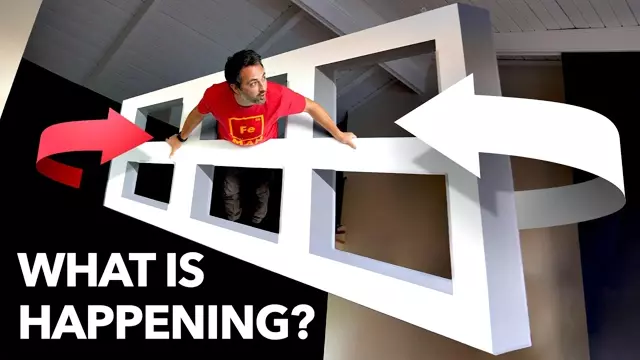2020-12-31
[public] 5.15M views, 308K likes, 3.04K dislikes audio only
3840×1920Ames window illusion illustrates how we don't directly perceive external reality. Special Holiday deal! Go to https://NordVPN.com/veritasium and use code VERITASIUM to get 68% off a 2 year plan plus 4 additional months free. It’s risk free with Nord’s 30 day money-back guarantee!
Special thanks to:
Prof. Phil Kellman from UCLA Psychology https://kellmanlab.psych.ucla.edu
Museum of Illusions in Los Angeles for the use of their Ames Room https://laillusions.com
Curiosity Show - Video on Ames Illusion: https://youtu.be/DkVOIJAaWO0
References:
Ames, A., Jr. (1951). Visual perception and the rotating trapezoidal window. Psychological Monographs: General and Applied, 65(7), i–32. https://doi.org/10.1037/h0093600
Marcel de Heer & Thomas V. Papathomas (2017) The Ames Window Illusion and Its Variations
DOI:10.1093/acprof:oso/9780199794607.003.0014
Oross, Stephen, Francis, Ellie, Mauk, Deborah & Fox, Robert. (1987). The Ames Window Illusion: Perception of Illusory Motion by Human Infants. Journal of Experimental Psychology: Human Perception & Performance, 13(4), 609-613.
Behrens, R. (1987). The Life and Unusual Ideas of Adelbert Ames, Jr. Leonardo, 20(3), 273-279. doi:10.2307/1578173
Burnham, C., & Ono, H. (1969). Variables Altering Perception of the Rotating Trapezoidal Illusion. The American Journal of Psychology, 82(1), 86-95. doi:10.2307/1420609
Allport, G. W., & Pettigrew, T. F. (1957). Cultural influence on the perception of movement: The trapezoidal illusion among Zulus. The Journal of Abnormal and Social Psychology, 55(1), 104–113. https://doi.org/10.1037/h0049372
Zenhausern R. Effect of Perspective on Two Trapezoid Illusions. Perceptual and Motor Skills. 1969;28(3):1003-1009. doi:10.2466/pms.1969.28.3.1003
Gehringer, W. L., & Engel, E. (1986). Effect of ecological viewing conditions on the Ames' distorted room illusion. Journal of Experimental Psychology: Human Perception and Performance, 12(2), 181–185. https://doi.org/10.1037/0096-1523.12.2.181
Long, G.M., Toppino, T.C. Adaptation effects and reversible figures: A comment on Horlitz and O’Leary. Perception & Psychophysics 56, 605–610 (1994). https://doi.org/10.3758/BF03206956
Gregory RL. Looking through the Ames window. Perception. 2009;38(12):1739-40. doi: 10.1068/p3812ed. PMID: 20192124.
Jahoda, G. (1966). Geometric illusions and environment: A study in Ghana. British Journal of Psychology, 57(1-2), 193–199. https://doi.org/10.1111/j.2044-8295.1966.tb01019.x
V. Mary Stewart (1974) A Cross-Cultural Test of the “Carpentered World” Hypothesis Using The Ames Distorted Room Illusion, International Journal of Psychology, 9:2, 79-89, DOI: 10.1080/00207597408247094
Margaret Kathleen Cappone (1966) The Effect of Verbal Suggestion on the Reversal Rate of the Ames Trapezoid Illusion, The Journal of Psychology, 62:2, 211-219, DOI: 10.1080/00223980.1966.10543786
Researched and written by Petr Lebedev and Derek Muller
Filmed by Derek Muller and Raquel Nuno
Animations, VFX, and Music by Jonny Hyman
Ames Room VFX and additional Ames Window animation by Nicolas Pratt
Additional Music from https://epidemicsound.com "Life in Color" "Singularity"
Large Ames window construction by GW Construction
Video supplied by Getty Images
/youtube/video/dBap_Lp-0oc?t=321.57999
/youtube/video/dBap_Lp-0oc?t=402.06
/youtube/video/dBap_Lp-0oc?t=462.06
/youtube/video/dBap_Lp-0oc?t=498.539
/youtube/video/dBap_Lp-0oc?t=520.21899
/youtube/video/dBap_Lp-0oc?t=624.77899

